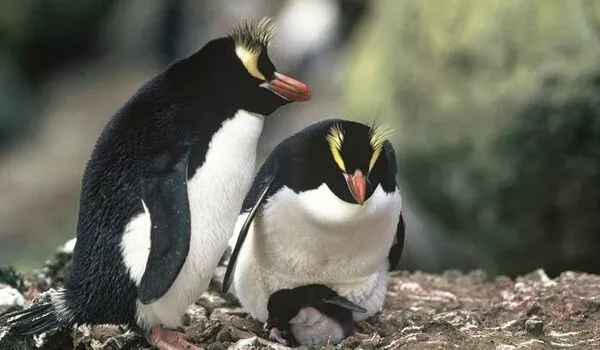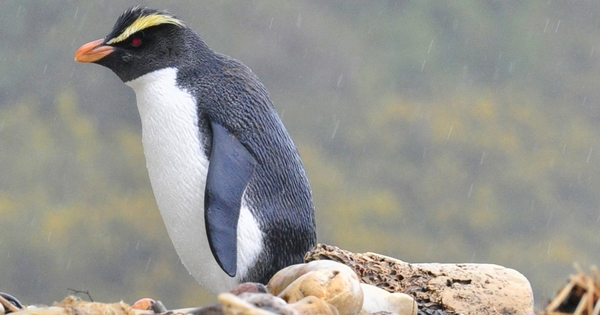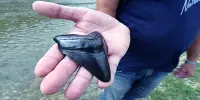Penguins have a wide range of habitats. They can be found in temperate climates such as Australia, New Zealand, South America, and southern Africa, as well as freezing climates such as Antarctica and the sub-Antarctic Islands. The Galapagos penguin is the furthest north, and the emperor penguin is the furthest south. Because they are social creatures, they spend their time on land in colonies. Some species raise their chicks in burrows for protection, while others stand out in the open and protect their young with their bodies.
A new study of old data suggests that the endangered erect-crested penguin’s unusual nesting habits (rejecting the first egg they lay) are due to the fact that they can’t feed two chicks, and the second, larger egg has a better chance of success. Lloyd Davis of New Zealand’s University of Otago and colleagues publish their findings and implications for penguin conservation in the open-access journal PLOS ONE.
The erect-crested penguin is the least studied of all penguin species, most likely because they breed on two isolated island groups southeast of New Zealand, the Antipodes and Bounty Islands. We don’t know much about them, but what we do know suggests that their numbers have plummeted in the last 50 years. Davis and two colleagues visited the islands in 1998 to study their unusual courtship and egg-laying habits. Because these observations are still the most recent and extensive data on erect-crested penguins, the researchers decided to reanalyze the data extensively to serve as a reference point for future studies and conservation efforts.
This study highlights the paradox of such an intriguing and endangered penguin species being so little known in this day and age, with the best data we have dating back nearly a quarter of a century. More research and better conservation marketing for this remarkable species are urgently needed.
Lloyd Davis
Erect-crested penguins practice brood reduction, which occurs when birds lay more eggs than they can rear. Around five days later, erect-crested penguins lay a smaller first egg, followed by a larger second egg. Davis and colleagues discovered that the first egg is usually lost from the nest before or shortly after the second egg is laid, and that parents will sometimes deliberately break or eject the egg. Furthermore, approximately 40% of mating penguin pairs fail to incubate the first egg. After the second egg is laid, steady incubation begins, which is primarily done by females at first.
The researchers suspect that erect-crested penguins retain the reproductive habits of their ancestors, which laid and hatched two eggs. Current birds sacrifice the first egg, since they can’t provide enough food for two hatchlings. The first egg may be small because it forms as the female migrates to the island, while the second egg, formed on land, has fewer constraints and grows larger.

This odd behavior is accompanied by surprising fluctuations in hormone levels. An analysis of blood samples collected from the penguins showed that during laying, females had testosterone levels that were as high as the males. However, testosterone levels dropped in females during incubation and rose in males, which may help males protect the nest and guard the incubating females from bullying by other birds.
The researchers warn that unless erect-crested penguins receive more research attention and conservation efforts, the species will remain poorly understood, and their very survival may be jeopardized. Climate change appears to be having a negative impact on their breeding on the Antipodes Islands, with increased storms and mudslides in recent decades wiping out parts of colonies and killing nesting penguins. Changes in the ocean around the islands have already caused eastern rockhopper penguin populations in the region to plummet, and the erect-crested penguin is likely to suffer as well.
The authors continue: “This study highlights the paradox of such an intriguing and endangered penguin species being so little known in this day and age, with the best data we have dating back nearly a quarter of a century. More research and better conservation marketing for this remarkable species are urgently needed.”
















